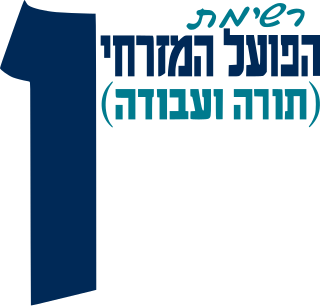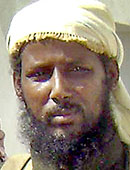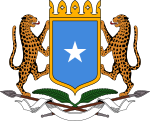Religious nationalism can be understood in a number of ways, such as nationalism as a religion itself, a position articulated by Carlton Hayes in his text Nationalism: A Religion, or as the relationship of nationalism to a particular religious belief, dogma, ideology, or affiliation. This relationship can be broken down into two aspects: the politicisation of religion and the influence of religion on politics.

The culture of Somalia is an amalgamation of traditions that were developed independently since the Proto-Somali era. The hypernym of the term Somali from a geopolitical sense is Horner and from an ethnic sense, it is Cushite.

Islam is the state religion of Maldives. The 2008 Constitution or "Fehi Gānoon" declares the significance of Islamic law in the country. The constitution requires that citizenship status be based on adherence to the state religion, which legally makes the country's citizens 100% Muslim.

Practitioners of Islam first entered Somalia in the northwestern city of Zeila during prophet Muhammad's lifetime whereupon they built the Masjid al-Qiblatayn; as such, Islam has been a part of Somali society since the 7th century.

Islam in Djibouti has a long history, first appearing in the Horn of Africa during the lifetime of Muhammad. Today, 98% of Djibouti's 490,000 inhabitants are Muslims. According to Pew, 77% follow the denomination of Sunnism, whilst 8% are non-denominational Muslim, and the remaining 13% follow other sects such as Quranism, Shia, Ibadism etc.. After independence, the nascent republic constructed a legal system based in part on Islamic law.

Hapoel HaMizrachi was a political party and settlement movement in Israel. It was one of the predecessors of the National Religious Party and the Jewish Home.

Christianity in Somalia is a minority religion within the country, which has a population over 99% Sunni Muslim, and Islam as the state religion. According to a 2020 report by the US Department of State, there are approximately 1,000 Christians in the nation.

Sheikh Mukhtar Robow, also known as Abu Mansur, is a former deputy leader and former spokesman of the Somali militant group Al-Shabaab. In 2015, he defected from Al-Shabaab due to ideology issues after years of hiding in his hometown. In 2022, Robow was appointed as the Minister of Religious Affairs in the Somali government.

Education in Somalia refers to the academic system within Somalia. The Ministry of Education is officially responsible for education in Somalia, with about 15% of the nation's budget allocated to scholastic instruction. The breakaway republic of Somaliland maintains its own advanced Ministry of Education.

The Ministry of Religious Services, formerly the Ministry of Religious Affairs and Ministry of Religion, is a government ministry of Israel that handles Jewish and other religious affairs.

The predominant religion in Somalia is Islam, with tiny minorities of Christians, traditional African religions and others.
Ridwan Hirsi Mohamed is a Somali politician. He is the former Minister of Religious Affairs and former deputy Prime-minister of Somalia. He hails from the Rer Ainanshe sub-division of the Habr Yunis Garhajis clan.

The Ministry of Religious Affairs is an Indonesian ministry that administers religious affairs. It is responsible to the president, and is led by a minister.

The Ministry of Religious Affairs and Culture administers the religious affairs, cultural affairs and historical and archaeology research efforts of Myanmar. The Department of Religious Affairs purification, perpetuation, promotion and propagation of the Theravada Buddhist Sasana and promotes Myanmar traditional customs and culture.

Freedom of religion in Somalia refers to the extent to which people in Somalia are freely able to practice their religious beliefs, taking into account government policies, non-state actors, and societal attitudes toward religious groups. Due to the Somali Civil War, the enforcement of laws pertaining to religion by the various autonomous governments in the region is inconsistent.
The status of religious freedom in Africa varies from country to country. States can differ based on whether or not they guarantee equal treatment under law for followers of different religions, whether they establish a state religion, the extent to which religious organizations operating within the country are policed, and the extent to which religious law is used as a basis for the country's legal code.

The Ministry of Endowment and Religious Affairs of Somaliland is a Somaliland government is the Somaliland branch of government charged with religious affairs and endowments. The current minister is Sh Mohamed Haji Adam Ilmi.
Sheikh Khalil Abdillahi Ahmed is a Somali politician served as the Minister of Endowment and Religious Affairs of Somaliland since July 2010.
The COVID-19 pandemic was confirmed to have reached Somaliland in March 2020. As of 16 August 2021, there are 4703 cases and 319 deaths. 68,206 tests have been conducted.












